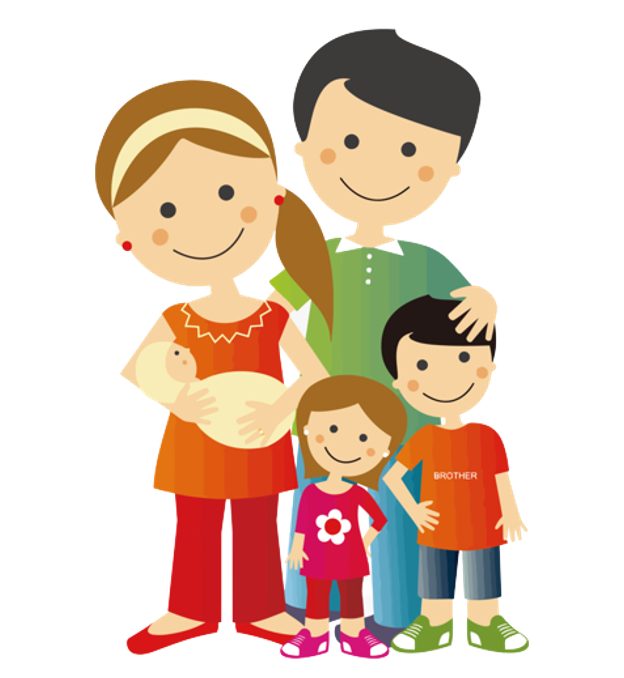Social Wellness In Our Community
- jessicaaqian
- Oct 3, 2024
- 3 min read
Social Wellness Within Our Community
Social wellness involves an examination of our relationships with our communities and those around us:

It encompasses developing positive relationships with those around us, as well as facilitating and experiencing wellbeing in our communities and systems that we belong to, such as schools and workplaces.
WHO has emphasised the importance of environment and community for our mental health and wellbeing, despite the fact that wellbeing is primarily seen as an individual concern.
We cannot achieve social wellness by ourselves – we must also engage those around us, and in the process we can improve their social wellness as well.
How Can We Engage With The Community
Develop And Maintain Healthy Relationships With Others:
Demonstrate care and empathy for others. By engaging others in a bidirectional interaction, we are involving them in social wellness routines as well. We can check in on our friends, colleagues, and family regularly to encourage them to keep in touch. You can also open up about your own recent experiences and concerns, which can prompt reciprocity in honesty engagement.
If you are attempting to engage an acquaintance whom you are not very close with yet, avoid heavy topics like religion or politics, and keep things light and simple. Good conversation starters include questions about clothing, recent interesting experiences, books and movies, hobbies, and projects, etc.
Being More Involved In Our Communities:
One way of doing this is to invite others to take part in activities both social and physical in our local communities, creating opportunities to connect with more people, with the latter also having a positive effect on health. Community Centres in Singapore offer a variety of activities for children, adults, and seniors, pertaining to enrichment, lifelong learning, arts and leisure, and sports.
Volunteer opportunities are also a good way to connect with others, increase their social wellness, and engage with like-minded volunteers as well as groups and persons who need more social support and engagement. Alternatively, simply getting together can increase social wellness for those who usually do not have enough time for their friends and family.

Some individuals may be shy, introverted, socially awkward, or even experience social anxiety, which may limit their opportunities for improving their social wellness. It’s okay to reach out and encourage them to participate more in their communities, but also remember that social wellness is about building relationships with others while being respectful and empathetic.
How To Reconnect With A Distanced Community
Do you somehow always feel disconnected from people around you? As if there is an invisible wall between you and them and as though you could never establish a connection or understanding with anyone? If this sounds familiar, carry on reading to better understand this phenomenon known as alienation and ways to rectify it.
Symptoms of Alienation:

You feel like no one understands you
All conversations feel boring and pointless
Focusing on the differences between you and others
Unable to feel a connection even with your closest ones
Alienation is a powerful feeling of isolation and loneliness, and stems from a variety of causes, referring to a sense of social estrangement, an absence of social support or meaningful social connection. True loneliness doesn’t come from being alone but from being unable to connect with others.
Possible Cause of Alienation

Negative past experiences. Being hurt in the past can make it easy to lose the ability to trust and connect with people. Childhood trauma, abuse, bullying or toxic relationships can distort our perception of people and the world around us which often can make us withdraw into ourselves.
Mingling with the wrong company. Judgemental and negative friends or family, having your achievements diminished and criticised or being taken for granted can be incredibly harmful to our mental health.
Deemed powerlessness - Feeling as though we are unable to influence choices and have little control over situations often results in feelings of powerlessness thereby leading to giving up when encountering resistance or failure.
Normlessness. A rejection of the dominant rules and values of a society or those of the majority leads to a difficulty in conforming to the rules and codes.
"How Do I Fix Alienation?"
Analyse your social circle and remove any toxic people in it (e.g. dream killers, over-critical people and manipulative individuals etc.)
Surround yourself with like-minded individuals - enrol in a class/ club, volunteer or join a community to find people with similar interests and values in life.
Move your focus from the differences between you and people onto the things that unite you.
Realise that ultimate understanding doesn’t exist - Everyone has a unique perspective on life and the world, our differences in perception and personality are what make life diverse and interesting.
Fight self-absorption and cultivate empathy - Discourage yourself from constant negative self-talk and engage in active listening with others.
Take advantage of occasions bringing everyone together, e.g. reunions, weddings and family gatherings, to practice the above
Stay connected via social media to stay updated on the lives of others and to also stay digitally connected with them.
Cultivate self-confidence - Understanding that having confidence in yourself isn't about believing that people will like you, it's about believing that you will be okay with people not liking you.
How Can We Maintain Healthy Relationships?
Celebrate Milestones.

Celebrating special moments or milestones is a simple but meaningful gesture which can help you build shared memories and moments with your family members. From birthdays to work promotions, your presence can go a long way in showing you care and support those you love.
Take Interest In Their Stories.
Our extended family members have exciting lives of their own and what better way to bond than to simply ask how they have been or what plans they have for the near future.
Technology Can Go A Long Way.
With social media, it’s easier than ever to stay in contact with family even though you could be far away from one another. Creating a family WhatsApp group can make it easier for all to share moments in their lives or check in with one another. Perhaps you could consider following your cousins on Instagram or send your grandmother a message good morning today.
How Can We Take Care Of Our Ourselves And Our Family Members
These easy strategies can make it easier for you to spend time with your family members even if you are busy. However, not all family relationships are a bed of roses. Differences and difficulties do arise within families and here are some ways of dealing with them.
Sometimes, we find ourselves assuming the role of a caregiver for our older relatives that are getting on in age or those that have chronic illnesses. This can result in a tremendous strain on yourself as you wrestle between worrying about their health as well as our other responsibilities. Here are someways to take care of both yourself and your family members.

Guilt and loneliness are common feelings caregivers experience. Oftentimes, this arises due to feelings of inadequacy in providing for loved ones. Overcoming these feelings requires one to take the first step and admit that caregiving is not an easy task.
WHAT TO DO: It is important to acknowledge that you are trying your best and you too need rest in order to provide the best.

Sometimes your family members might disagree with certain health care decisions, or they may feel differently about the choices you make. It is important to recognise that difference are inevitable because of differing life experiences.
What to do?

Confronting these differing views with conversation instead of conflict is vital in helping both sides understand each other and work towards a solution that both sides can agree on.
As we and our families continue to grow and change, let’s work towards resisting anger and fear that leads only to wasted time, tension and loneliness. Instead, let’s work towards breaking down walls and creating opportunities for bonding, understanding and love across all generations.








Comments